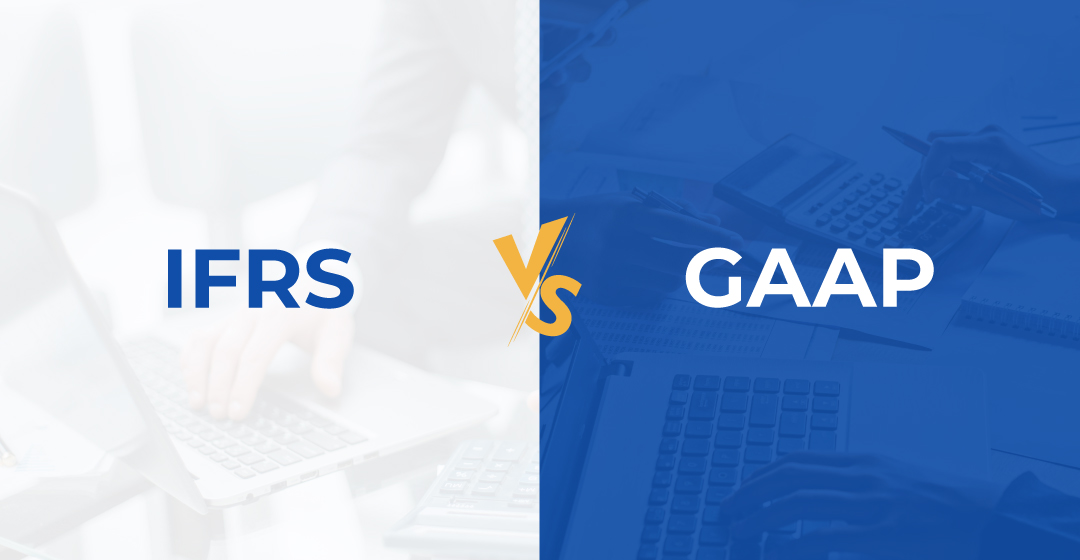Accounting standards hold their own significance in the world of business. In the absence of these guidelines, it would have been considerably easier for companies to manipulate their financial figures and portray themselves as successful. Accounting standards provide a well-defined framework on how a business must record and present its financial information, in a way that can be easily interpreted, analyzed, and compared. International Financial Reporting Standards (IFRS) and Generally Accepted Accounting Principles (GAAP) are two of the most widely accepted accounting standards across the world. Through this blog, we will provide you with an overview of these two standards and outline the key differences between them.
International Financial Reporting Standards (IFRS)
IFRS was developed by the International Accounting Standards Board (IASB) – an independent group of experts that sets up accounting standards. IFRS was introduced with the aim of bringing consistency mainly across aspects like record keeping and expense and income reporting. As of today, IFRS has been widely accepted across the world and has emerged as the global standard for financial statement preparation for public companies.
Generally Accepted Accounting Principles (GAAP)
GAAP was developed by the Financial Standards Accounting Board (FSAB) and the Governmental Accounting Standards Board (GASB). It is widely adopted in the USA by public companies for financial statement preparation. Also, it is the adopted standard for governmental accounting in the USA.
Differences Between IFRS and GAAP
IFRS and GAAP differ in several respects, and we have highlighted these below:
Scope
IFRS is used globally whereas GAAP is restricted mainly to the USA.
Inventory Cost Methods
Inventory valuation refers to calculating the total worth of your inventory, and this can be done through three (3) accounting techniques.
- First in, First Out (FIFO) method – The first item in the inventory is considered to be the first to be sold.
- Last in, First Out (LIFO) method – The last item in the inventory is considered to be the first to be sold.
- Weighted average method – The amount earned from the sale of a share of the inventory determines the amount that can be earned through the sale of the remainder of the inventory.
While GAAP permits using any of the above three (3) methods, IFRS prohibits the usage of the LIFO method.
Inventory Write-Downs
An inventory write-down is an accounting procedure to record the depreciation of an inventory’s value. This loss in value could be due to technological or any other reason. It is however possible for the asset’s value to rise again if the factor is no longer present. In such a scenario, IFRS permits the asset value to be re-evaluated while GAAP does not allow such reversals.
Asset Revaluation
As we know, the value of assets owned by the company constantly fluctuates. This requires re-evaluation. IFRS provides you with the flexibility to reevaluate inventories, long-term assets including PPE (plant, property, and equipment), intangible assets, and marketable securities. This is not the case with GAAP as you are limited to reevaluating the marketable securities only.
Cash Flow Statement
A cash flow statement is an integral element of the company’s financial records and is prepared differently in GAAP and IFRS. While IFRS lists all interest and dividends within the financing or the operating section, GAAP lists the paid and received interest along with the received dividends in the operating section while the paid dividends are included in the financial section.
Balance Sheet
A balance sheet presents a summary of the company’s assets, liabilities, and shareholder equity. The preparation of this financial document differs under IFRS and GAAP. While IFRS requires adding the least liquid assets first, GAAP specifies that the most liquid assets must be added first.
Development Costs
A company may own intangible assets like trademarks, patents, and other intellectual property. GAAP considers the internal costs of developing these assets as expenses. On the other hand, IFRS allows for capitalization and amortization of them over several periods.
Hope you are now clear on the major differences between IFRS and GAAP. One must bear in mind that IFRS is the accounting standard adopted by the UAE, and serves as the basis for the accounting and bookkeeping regulations here. Moreover, it is the accepted standard for corporate tax purposes.
If you’re looking for professional services to assist you with accounting, corporate tax, or VAT in the UAE, reach out to InZone and receive all the assistance you need to stay on top of your obligations.










 Founder's Podcast
Founder's Podcast 
